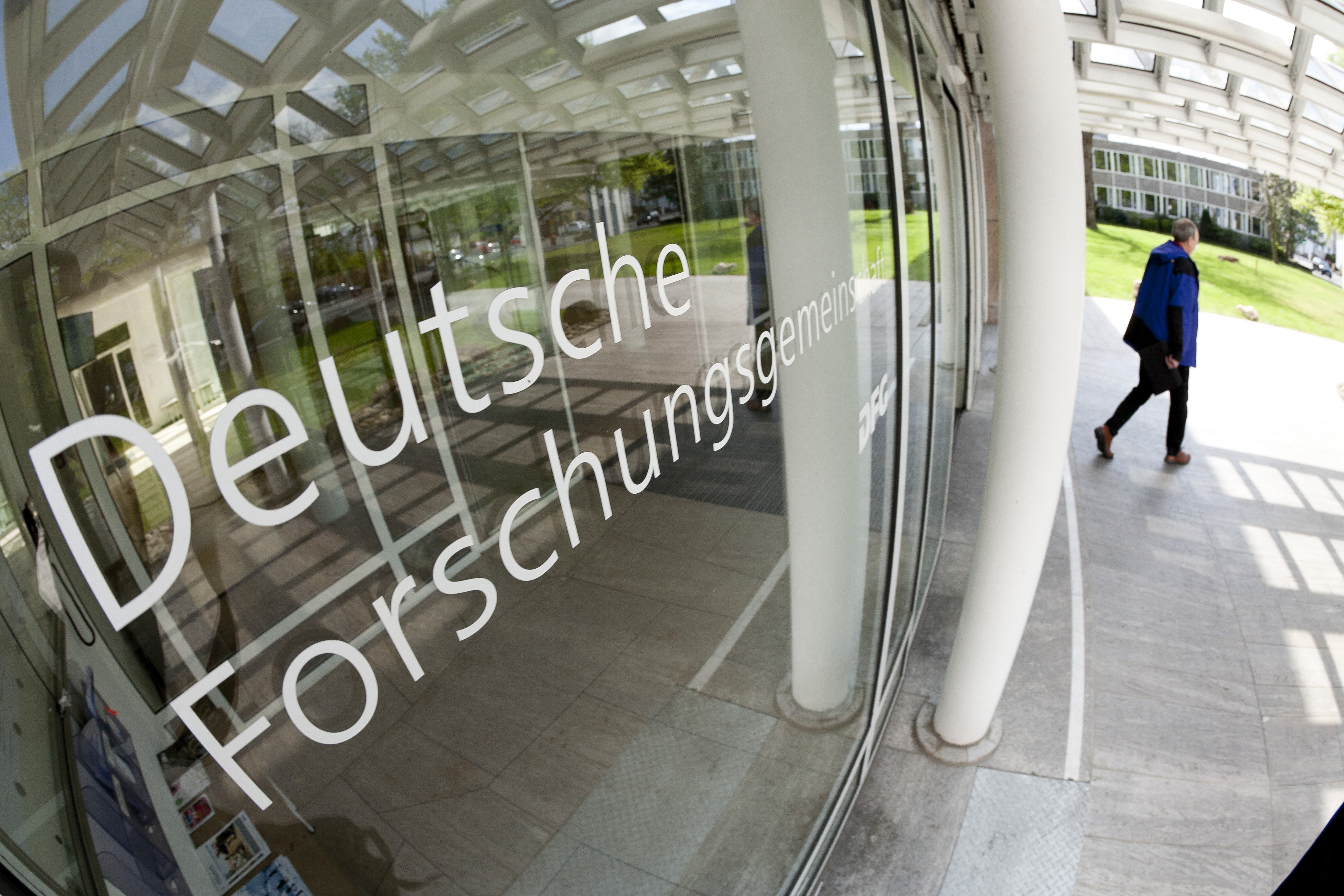What are the DFG’s Positions with Regard to Research Policy?
Berlin Declaration
On 22 October 2003, the DFG signed the “Berlin Declaration on Open Access to Knowledge in the Sciences and Humanities”(externer Link), signalling its commitment to supporting exchange in research by promoting freely accessible online electronic resources.
OA2020
In spring 2016, the DFG signed the Expression of Interest put forward by the OA2020 Initiativ(externer Link). OA2020 was launched as a global initiative by the Max Planck Society in 2015. Since then, it has been supported by a growing number of researchers, libraries, institutions and organisations. Its aim is to accelerate the open access transformation by converting academic journals that were previously behind a paywall to open access. The aim is to reallocate the money currently spent on subscriptions to journals towards funding the costs of open access publication models. The DFG supported the initiative through the National Contact Point Open Access OA2020-DE, which was established along with other Alliance organisations.
2018 Strategy paper
In 2018, the DFG published a strategy paper on “Funding Information Infrastructures for Research(Download), which reflects on the structural framework conditions of DFG funding activities in the field of scientific information infrastructures and explores the current need for changes in this area. It also includes an in-depth examination of the open access transformation – one of the funding areas where the DFG identified the greatest need for action in 2018. With regard to the open access transformation, the DFG saw the areas of funding, monitoring and policy as requiring attention most urgently. Concrete measures have been formulated for all three areas, and these are now being implemented.
cOAlition S and Plan S
An association of several European research funding organisations (cOAlition S) agreed to require full and immediate open access to research publications resulting from their grants from 2021 onwards. Member organisations and institutions of cOAlition S will also implement “Plan S” from 2021 onwards. Plan S contains various principles to achieve open access.
The DFG welcomes this coordinated approach among funding organisations towards the realisation of open access. The DFG’s current strategy regarding open access places particular emphasis on the role of the research community in shaping the open access transformation. It currently anticipates that rigorous open access mandates can potentially result in increased article processing charges (APC), an effect that the DFG strives to minimise. Moreover, the obligations formulated in Plan S require fundamental changes to the system by which performance is measured by research organisations. In particular, a shift away from indicators such as the journal impact factor is necessary, but there is still a long way to go here. The DFG is supporter to cOAlition S, but is not a member itself.
- cOAlition (externer Link)
- Response of the DFG (German Research Foundation) on the implementation document regarding Plan (Download)
- DFG statement: Establishment of “cOAlition S” to support open acces(interner Link)
Action Plan for Diamond Open Access
Published on 3 March 2022, the Action Plan for Diamond Open Access was initiated by Science Europe, cOAlition S, OPERAS (a European infrastructure for open scholarly communication in the humanities and social sciences), and the French funding agency Agence nationale de la recherche (ANR). The plan focuses on four key areas which align with the DFG’s commitment to open access:
- enhance the efficiency of and collaboration between Diamond Open Access journals and platforms
- standardise and harmonise quality requirements
- improve skills among researchers and publishers while at the same time establishing a supranational non-profit competence centre
- optimise the sustainability of Diamond Open Access publication infrastructures
The DFG supports the action plan and contributes to the international coordination of efforts to develop a demand-driven, researcher-led open access publishing system free of commercial interests.
- Action Plan for Diamond Open Acces(externer Link)
- DFG Supports “Action Plan for Diamond Open Access(interner Link)
2022 Position Paper
Academic publishing faces a number of challenges that can have a negative impact on science and the humanities. In particular, the assessment of scholarship based on metrics can provide problematic incentives, thereby preventing the system of academic publication and research as a whole from developing in a way that is appropriate to its purpose. With the aim of contributing to a critical discussion and counteracting these trends, the DFG published a position paper in May 2022 entitled “Academic Publishing as a Foundation and Area of Leverage for Research Assessment: Challenges and Fields of Action”.
- DFG website section “Publishing system(interner Link)
- Position paper “Academic Publishing as a Foundation and Area of Leverage for Research Assessment: Challenges and Fields of Actio(Download)
EU Council Conclusions on Scholarly Publishing 2023
On 23 May 2023, the Council of the European Union adopted conclusions on “high-quality, transparent, open, trustworthy and equitable scholarly publishing.” The DFG issued a statemen(Download) welcoming the Council Conclusions and supports the landmark recommendations they put forward for the academic publication system.
International Science Council (ISC)
The DFG is engaged in dialogue with the International Science Council (ISC) with regard to the latter’s positions. The DFG supports the ISC’s principles with regard to scholarly publishin(externer Link) and the suggestions it puts forward for reforming academic publishing.
